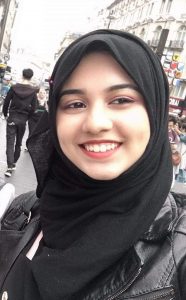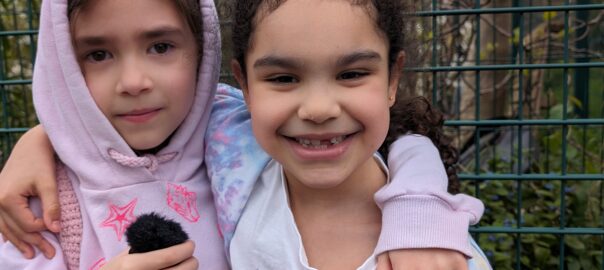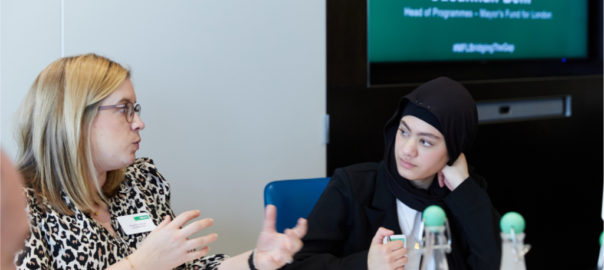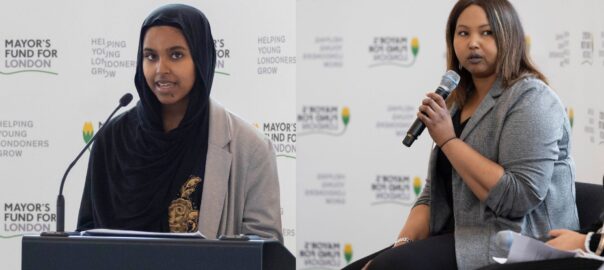Coping with Covid: London’s artistic future

 As part of our commitment to shining a light on the issues that matter most to young people, we reached out to our Student Ambassadors to talk about their thoughts, feelings and concerns for the future. In this blog, Malaikah shares her thoughts on the experience of young creatives in lockdown and what this means for the future. She also includes an insightful interview with friends.
As part of our commitment to shining a light on the issues that matter most to young people, we reached out to our Student Ambassadors to talk about their thoughts, feelings and concerns for the future. In this blog, Malaikah shares her thoughts on the experience of young creatives in lockdown and what this means for the future. She also includes an insightful interview with friends.
“As Oscar Wilde once said, art is the most intense mode of individualism that the world has known. But, when this sense of individualism is taken away, we are left to question everything.
This became a reality last year when a dystopian disaster, also known as Covid-19, took over and put the world on pause. Complete pause. Frozen in time, we tried to continue our lives as normal, but this was easier said than done. Especially for aspiring young creatives.
Not only did this interval in time stunt the artistic growth of London’s creative future, it also halted the creative industries in London, leading them to also take a hit. This of course, can be said about all industries, but my personal experience through lockdown meant that I took particular notice of this sector. As well as many other aspiring creatives I know, I felt that missing out on the vital and creatively defining years of our life was something I could not put into words.
Of course, not everything about lockdown was awful, because times of misery can bring out the most emotionally driven work from an artist, and many students delved into finding innovative solutions to be able to fulfill their tasks for creative subjects.
For example, I and many of my friends who take art and design qualifications did photoshoots of ourselves at home, DIY-ed props, and used online apps to use to edit our designs. It was interesting and challenging in the best way possible, highlighting that there are no limitations to creativity.
However, on the other hand, it was also very unmotivating, because although there are no limitations to the mind, there are limits in the real world, and the lack of facility left us trapped or just unhappy with our work. I can undoubtedly say every aspiring artistic student has faced this problem within the last two years, but the question now is: how do we move forward from this?
Following the mayoral election, Sadiq Khan promised: “After the pandemic, I will build a better and brighter future for the arts in London”. This gives me hope. But what about others like me? To find out, I asked (or rather interrogated) my two musically talented friends, Manolis and Qeys, to see how they felt. While doing this, I realised that the setting and opportunity that London itself offers completely changes what we may be able to achieve generally, not just artistically.
Q: How do you currently feel about pursuing arts in London specifically?
Manolis: Overall, It’s a bit overwhelming and competitive and stuff, but the inspiration part… yeah, currently it feels stunted because there are so many interesting feelings I feel that need to be explored in my songs specific to my lifestyle… from friendships to culture in London, even the weather – it’s all essential.
Qeys: It’s tough because Covid put a halt on lots of facilities, and I rely on facilities because I’m not made of money. Being in London, it’s a very multicultural diverse space so it’s inspiring, but the space is competitive. When we’re talking specifically about London, I’m very grateful. As the capital of the UK, there are so many opportunities here you won’t find in other cities. So right now, it’s all about using it to your advantage. People move to London from places like Wales and Yorkshire and I feel like when you’ve lived here a while you don’t realise the massive advantage you have.
Manolis: Yes that is true, the advantage part, even if it sometimes doesn’t feel like it.
Q: So what facilities do you guys use in London, having more of a music background?
Qeys: Music equipment at school, youth centres like Unitas. That’s all I use but I know there’s so much more.
Manolis: Blind faith, Blind faith…
Qeys: But like I said, Covid put a halt on a lot of these things
Me: I get that, plus motivation probably ran to the ground during lockdown because I personally always thought I have tomorrow to draw or paint or write but gradually I had made my hobby a chore
To summarise, all of us concluded that Covid has actually made us realise the practical advantage living in the capital gives us, whilst before this was just a subconscious acknowledgement never recognised. Although not a golden stamp of guarantee, but it would be ignorant to say it isn’t a privilege to be here sometimes.
So when we think, how did London’s future creatives cope with Covid, I think the answer would be that they handled it well, with of course the struggle that I think will be used only for the greater good. Not only did it boost a sense of appreciation for the facilities that were taken away from us, the emotional scuffle that came face to face with this virus will likely form a bright future for London’s upcoming artistic years as well.
Art still remains as a wonderful way to express one’s individualism, and even when this was diluted by a global disaster, we can likely argue that it only added more depth to our own personal growth and innovative thinking, so I can place my confidence in the ultimate restoration of the arts in London confidently. All the best to London’s artistic future!
Click here to meet our Access Aspiration Student Ambassadors.



